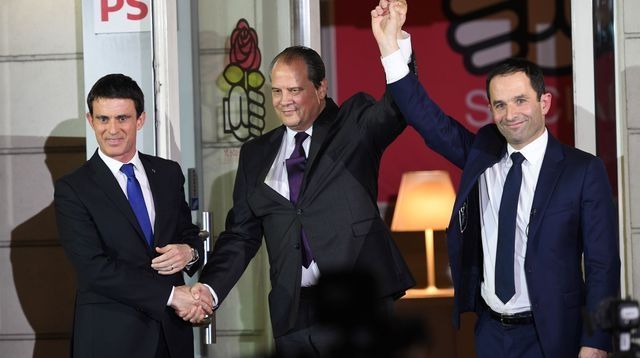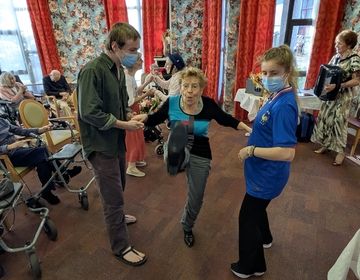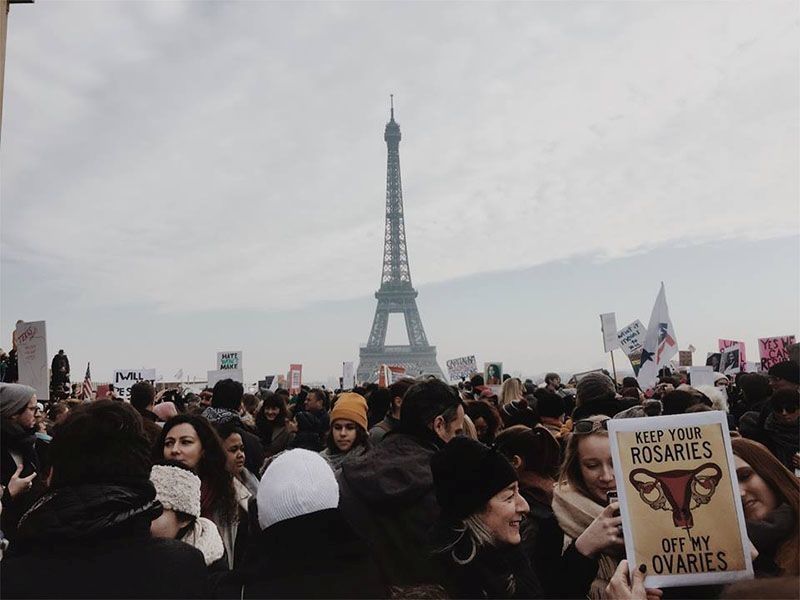Politics in France: Another Presidential Election
A piece of advice that was given to me by my French professor, before arriving here in France, is that the French love to talk politics and they will most likely ask what you think of Donald Trump. She also recommended finding the most neutral way possible to talk about the political situation in the US, at least until you know them well enough to discus your true political alliances. I admit, I haven’t remained neutral; I have voiced my anti-Trump sentiments because I feel it is important for people in other countries to understand that I and many other Americans do not stand for his politics or his rhetoric. I am not afraid to show pictures of protests and demonstrations in the US. So far I have only encountered one French person, an Italian immigrant, who disagreed with me. Every other conversation I’ve had has concluded in something along the lines of “We understand, Marine Le Pen could become president here in France and we’d be in the same boat”.
In case you don’t know, Marine Le Pen is the head of the “Front National” an extreme right, nationalist party in France. Despite her extreme politics, she has acquired a significant amount of support in recent polls for the upcoming 2017 presidential election. Although election season is over in the US, it is just getting interesting here in France.
French presidential elections are set up much differently than in the US. The first major difference is that two major political parties do not dominate the political scene. On the contrary, there will be at least 9 candidates on the ballot in April, about 5 of which are considered serious contenders for the presidency. However, the winner will most likely not be decided after the vote in April because the voting system in France called a majority-run off. In a majority run-off a candidate must win 50% plus 1 of the popular vote, with so many candidates in contention it seems unlikely that anyone will win a majority of the vote in the first round. In fact it has never happened since the constitutional amendment installed this form of direct voting in 1962. In May a second round of voting will be held between the top two finishers of the first round, and this time the winner will become president.
The 2017 presidential race is turning out to be full of drama, and the future winner is far from clear. The drama began in December when current president François Hollande declared that he would not run for re-election. This left the socialist party and the left electorate divided in debate as to who should run in Hollande’s place. Despite endorsement from the president himself, former prime minister Manual Valls was defeated in the Socialist Party primary by newcomer Benoît Hammon. It remains unclear whether Hammon will succeed in uniting the left-leaning electorate.

A divided left leaves the door wide open for the right wing parties in France. Yet, the right wing party called the Republicans is not without their own drama. The candidate that they have endorsed, François Fillon is currently under investigation for allowing his wife and children to receive public funds for work they did not do. If he is found guilty, he will likely no long be able to run as a candidate. Even if he is cleared of charges, it may be too late for him to disassociate himself with the scandal and convince the electorate that he is not corrupt.
The candidate that hopes to profit from the divided left and the scandals of the right is center-right candidate Emmanuel Macron. He is the former minister of the economy, he is young, and he appeals to the people through twitter and other social media. Another candidate who hopes to benefit from the disaccord is Marine Le Pen. In 2012, she finished third in the first round of voting just missing out on the second run-off round. Following the election of Donald Trump and the successful Brexit vote, Le Pen is hopeful that a nationalistic, anti-terrorism, anti-immigration movement is sweeping the world.
It is clear that the 2017 French presidential election has both national and global implications. Who ever is elected will have to face a new international context, confront terrorism, fight unemployment issues in France, and take a stance on immigration. I will be following the events of the campaign eagerly, but anxiously.
Angela Fusselman
St. Olaf College
Related Posts

At Home In France
When I came to Rennes for my study abroad, I thought my biggest lessons would come from my university classes—grammar, vocabulary, literature, all that. But honestly, some of the most... keep reading

Volunteering in Rennes
“You better hurry up, or we are going to get a timer.” A word to the wise: if you are wanting to volunteer at a retirement home in France, make... keep reading

Rugby in Rennes: Playing a Sport Abroad
As I was considering applying for my study abroad program in Rennes, one of my biggest concerns was whether I would fall behind in my sport while I was away... keep reading
